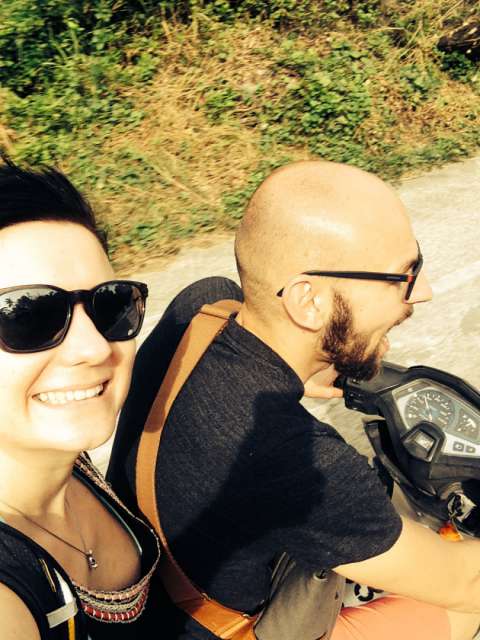Stop & go go go!
ਪ੍ਰਕਾਸ਼ਿਤ: 13.12.2016
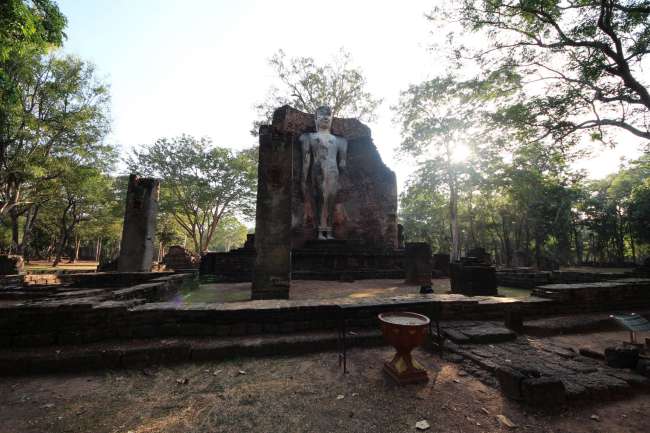
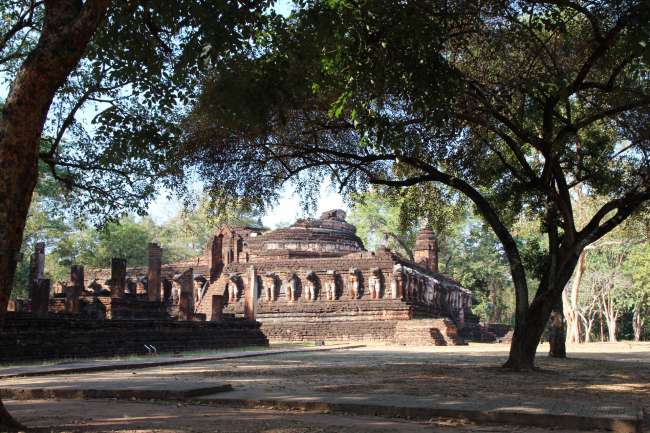
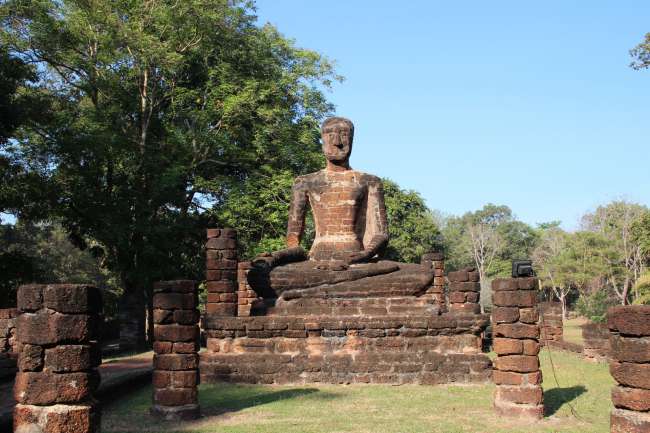
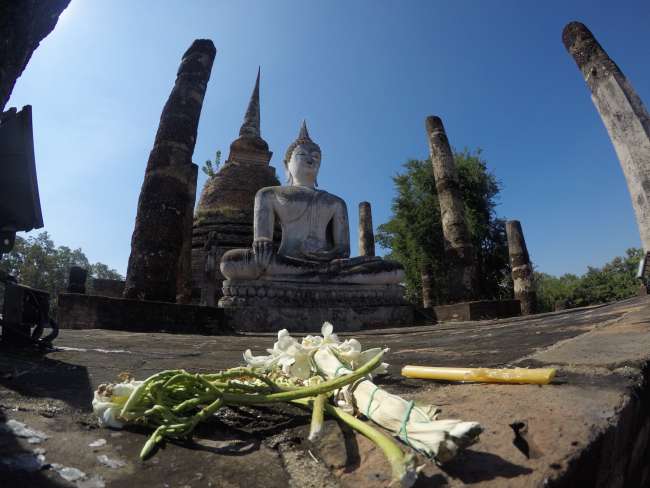
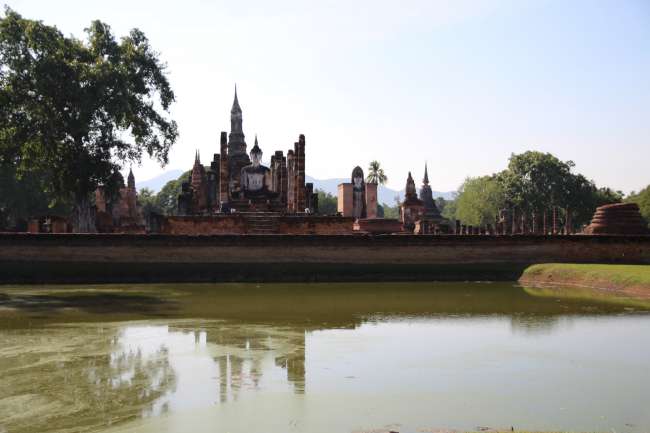
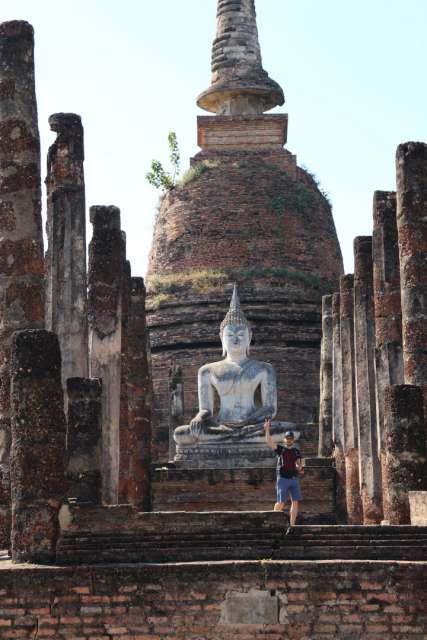
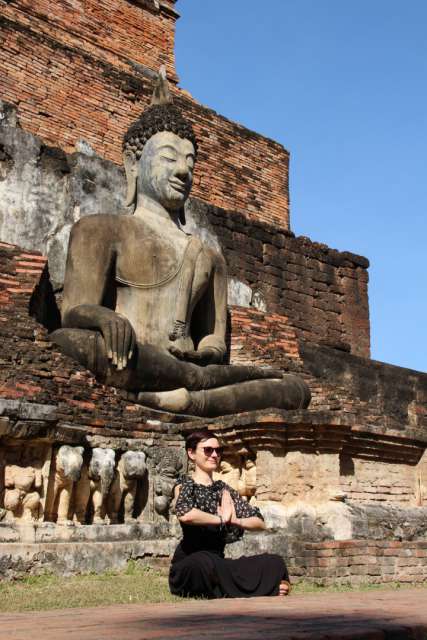
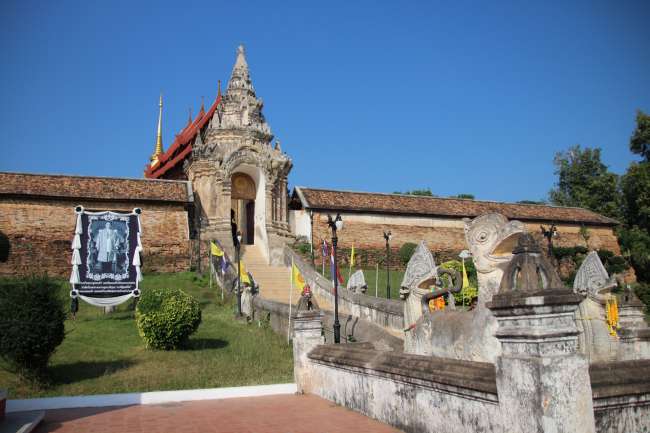
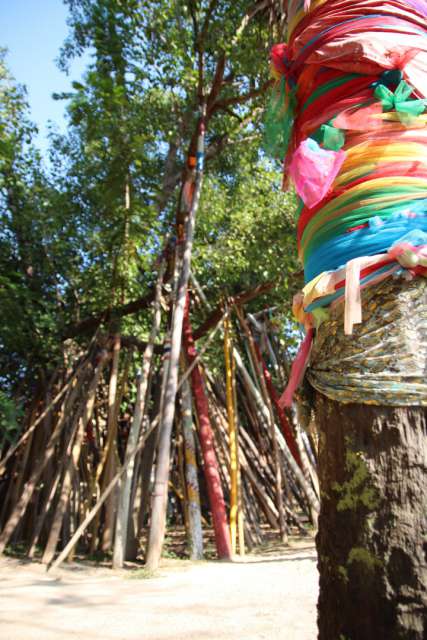
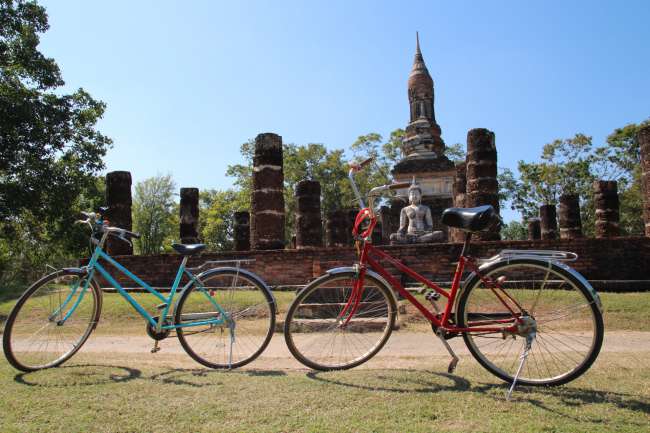
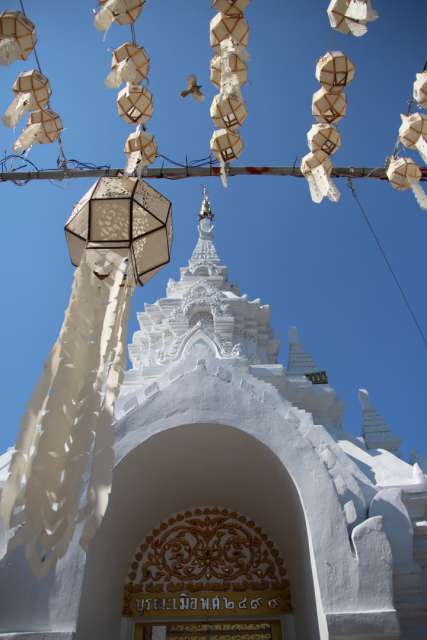
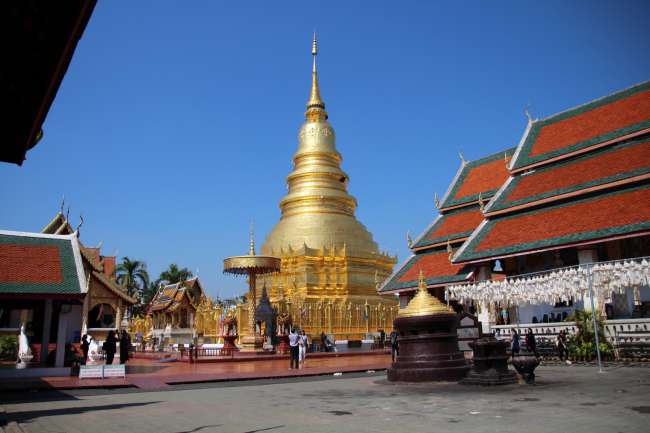
ਨਿਊਜ਼ਲੈਟਰ ਦੀ ਗਾਹਕੀ ਲਓ
Greetings from Chiang Mai - we have arrived at the (for now) northernmost destination of the tour and have comfortably left behind the mountain and valley sections of the highway. But let's start from the beginning...
After spontaneously visiting a part of Kamphaeng Phet's World Heritage Site on the evening of December 11th, we would like to provide you with some facts about the city. It was founded in the 1360s by King Lue Thai as an outpost of the Sukhothai Kingdom. When we translate the city name metaphorically as 'Diamond Wall,' it supports the aforementioned status. The city served as a buffer between Sukhothai and Ayutthaya and the Kingdom of the Burmese. The remains of the approximately five-meter-high and 300-500m-wide walls, along with an additional 25-meter-wide moat, confused us a bit on the first day of our arrival. However, they proved to be very helpful for the visit the following day.
The second part of the historical park is located northwest of the fortified city in a vast, open forest area. The resident monks preferred this tranquility for their meditation. Due to the preserved remains and the very low number of other visitors, we were able to immerse ourselves very well in the past. Only the clicking of the camera occasionally interrupted the peace. You can admire some of the wonderful pictures here.

Kamphaeng Phet I Historical Park
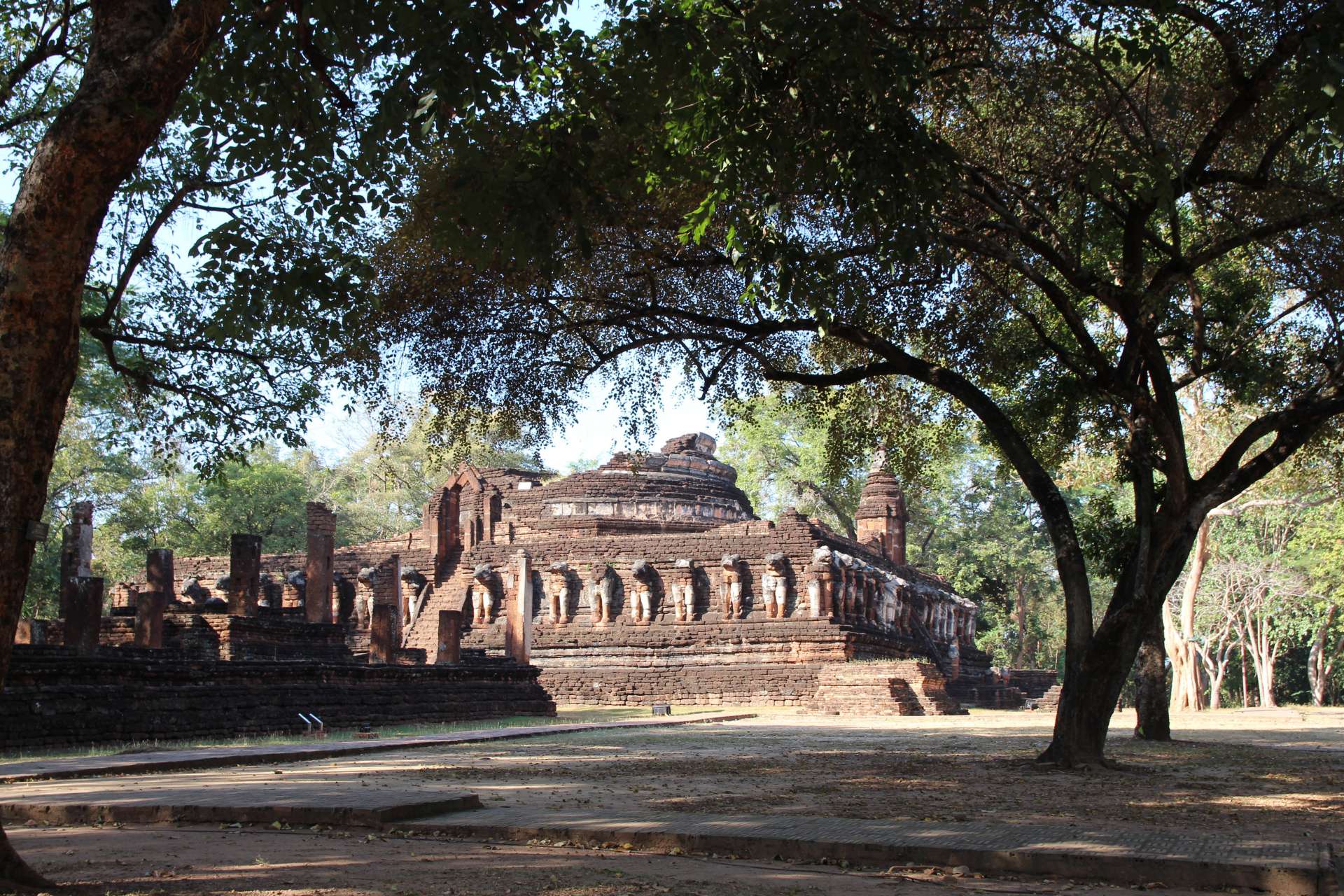

Due to the northwest location of the ruins, we were able to continue our journey to Chiang Mai directly from the World Heritage Site - next stop Sukhothai. Arriving in the capital where the king allegedly personally opened the gate when a citizen of his kingdom had an urgent matter, we decided to explore the place by bicycle. The two tourist bikes accompanied us with joyful squeaking and creaking as they made their millionth round through the very well-maintained areas. With a bit more, but by no means disruptive, tourist traffic, we rode through the impressive scenery and gathered more fascinating impressions of the ancient high culture.
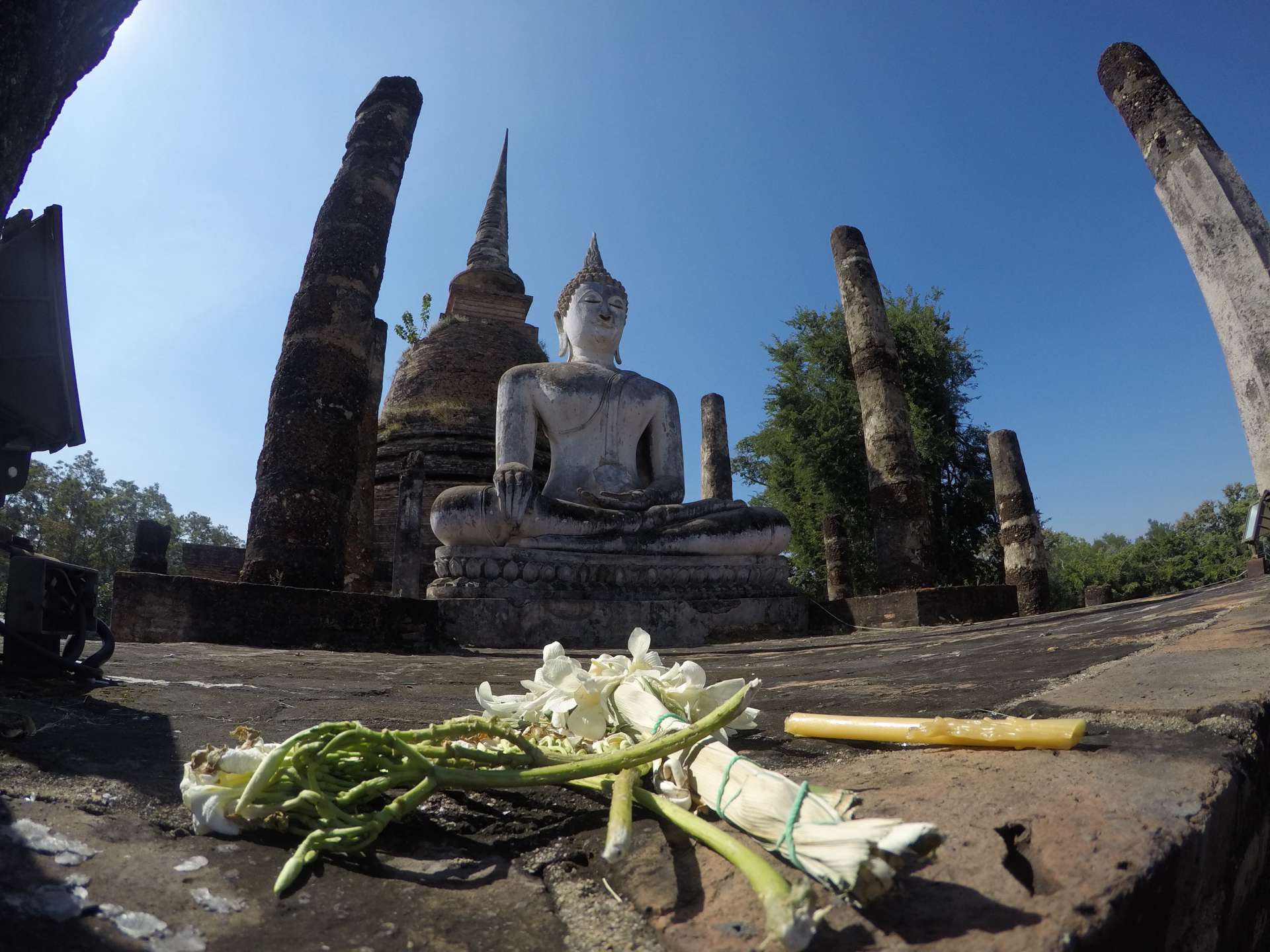
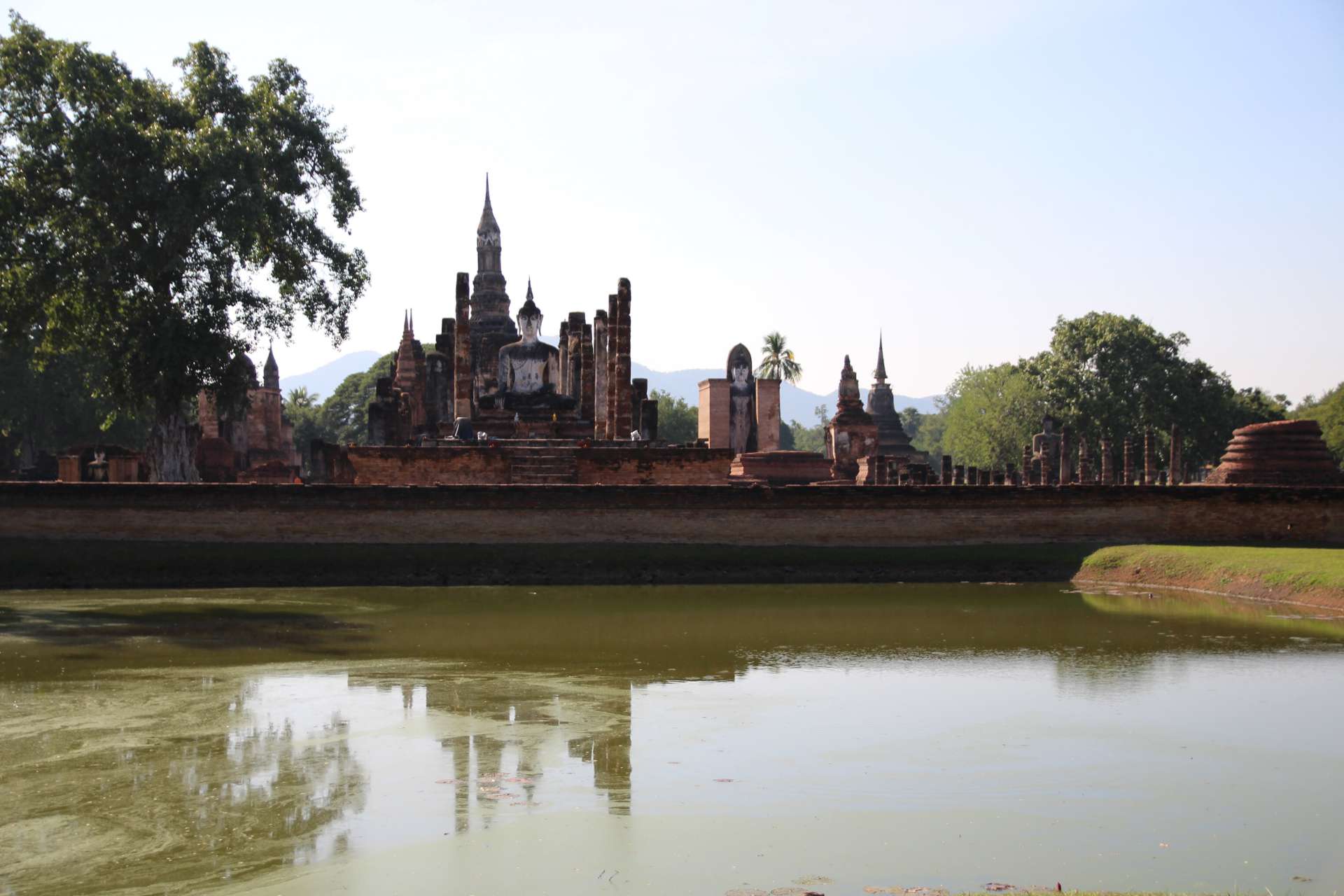

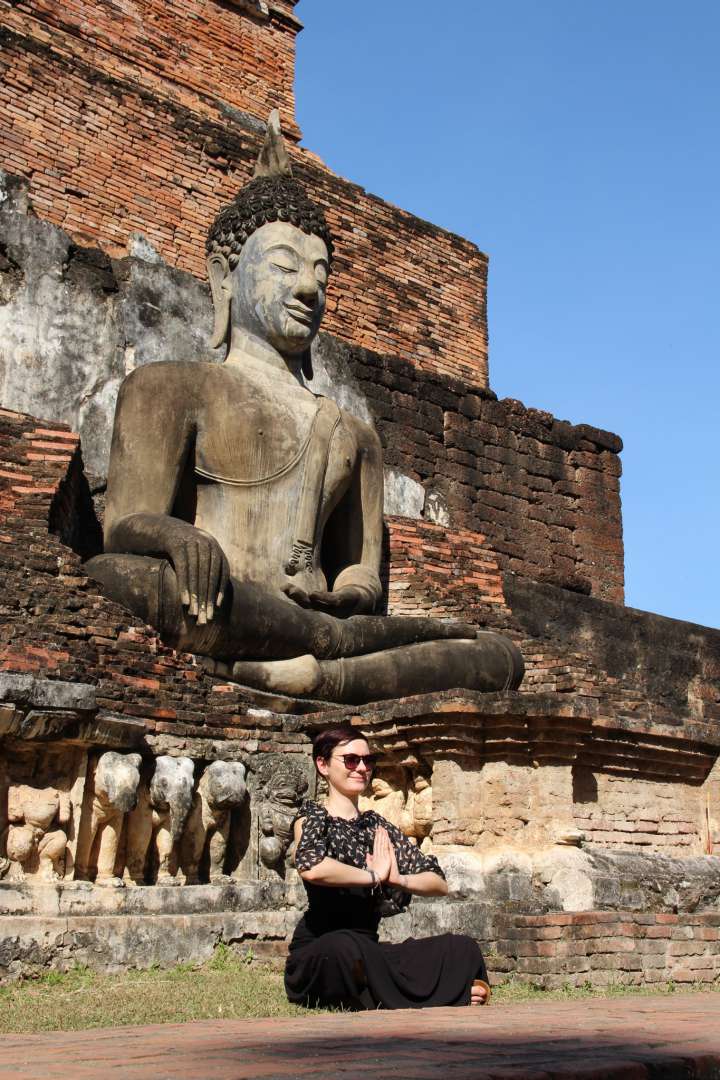
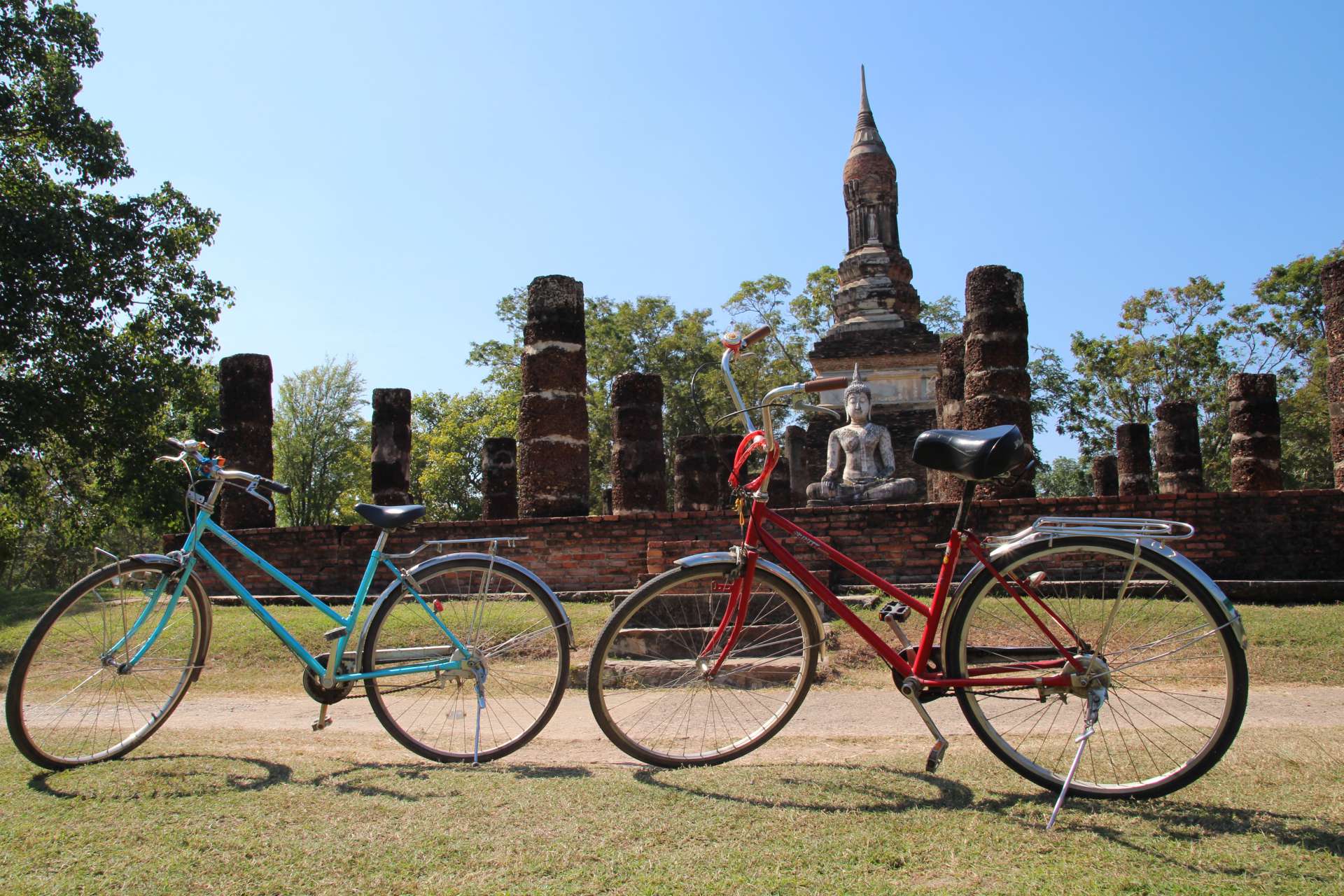
After taking a victory lap through the temple complexes on bicycles, we decided to leave the new city of Sukothai as it is and use the motorized all-wheel drive for a quick continuation of our journey. Always in good spirits that we would be able to continue on a beautiful route through two national parks and find suitable accommodation further north, we stopped for a fruit snack at an elderly lady's place. We are convinced that she could definitely be the Thai tooth fairy or her smile testifies to a martial arts career.
Before spending the night in Lampang, we took a tour in our own car through the only Thai city where horse-drawn carriages are still used for transportation. After passing a kitschy illuminated bridge, a night market with the usual delicacies, and the now routine end-of-day beer in the pickup truck bed, we went to bed.
The next morning in Lampang, we had breakfast in a protective monastery with a beautiful garden, and in Lamphun, we had lunch in an extensive temple complex. We entered the monastery garden through a small entrance. There, a Bodhi tree is supported by many poles, giving it a strange appearance. The following tradition explains this: the gift of self-carved and partially painted poles is meant to serve the acquisition of religious merits and is comparable to donating food to monks or giving money to temples. The 46-meter-high chedi in the Wat of Lamphun was quite different from the wooden pillars, as it is entirely gold-plated and dazzled us from a distance. It is the symbol of the most powerful temple of the Mon Kingdom. We had seen enough there. The final 'go' of our sprint towards Chiang Mai!


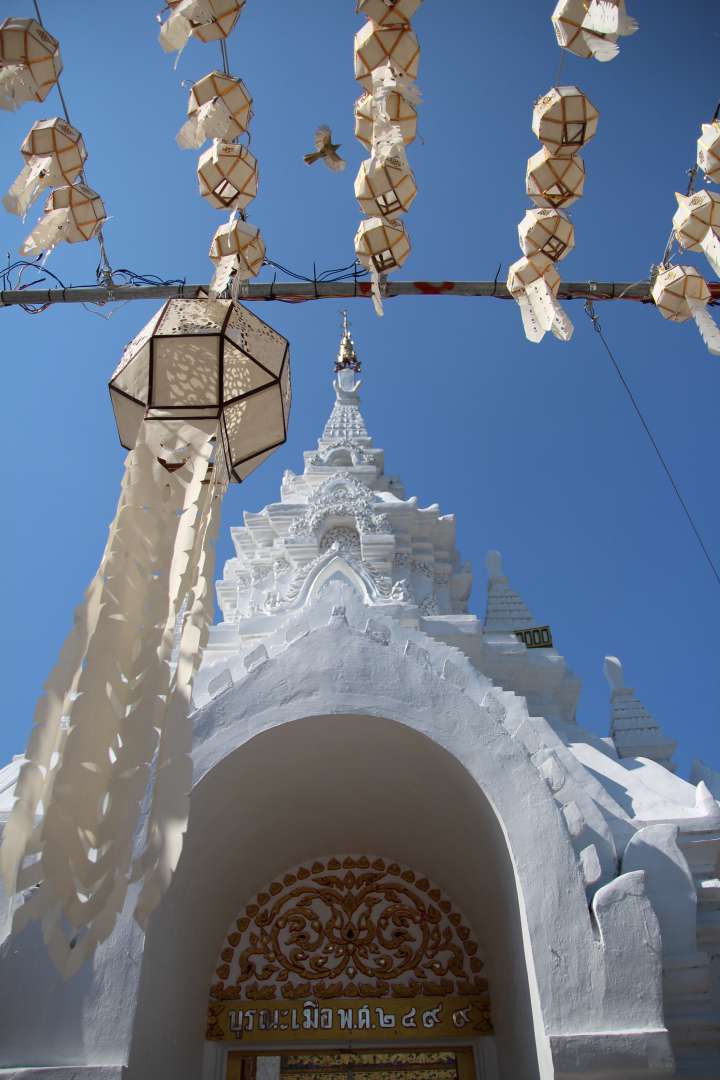

ਨਿਊਜ਼ਲੈਟਰ ਦੀ ਗਾਹਕੀ ਲਓ
ਜਵਾਬ

